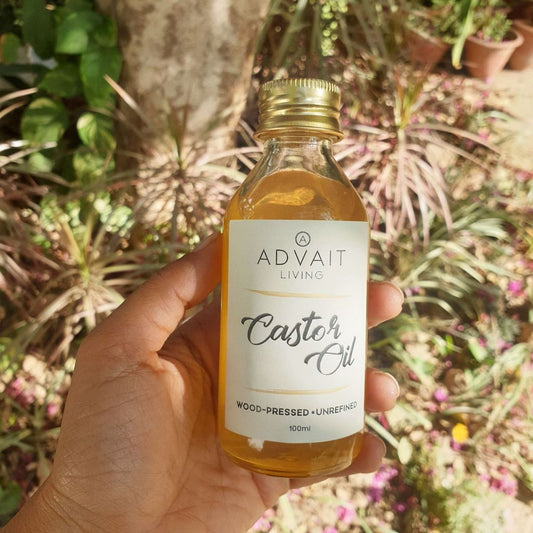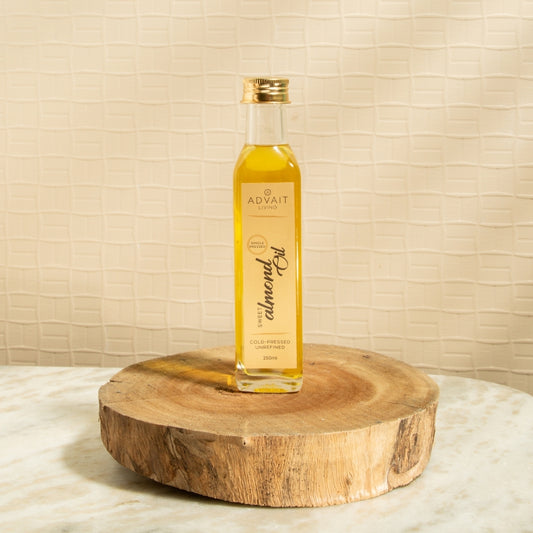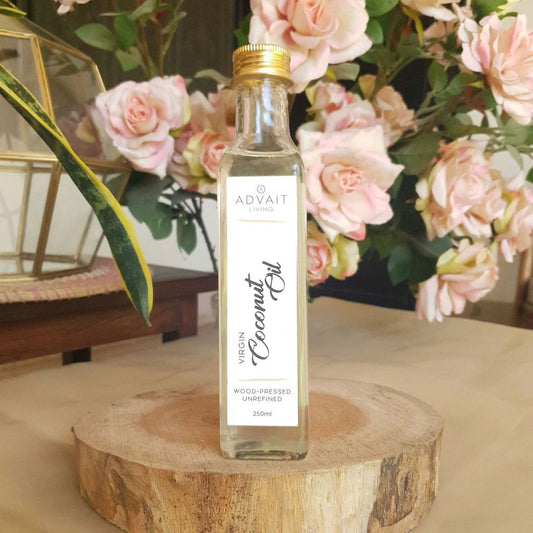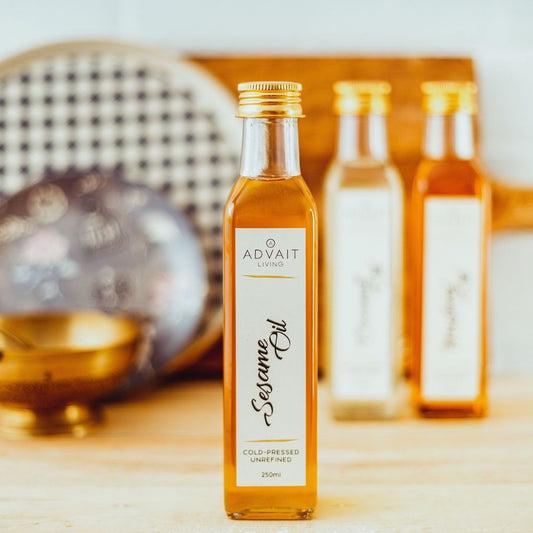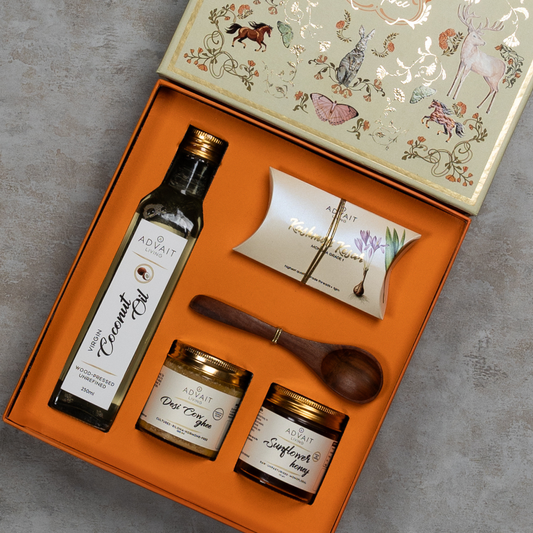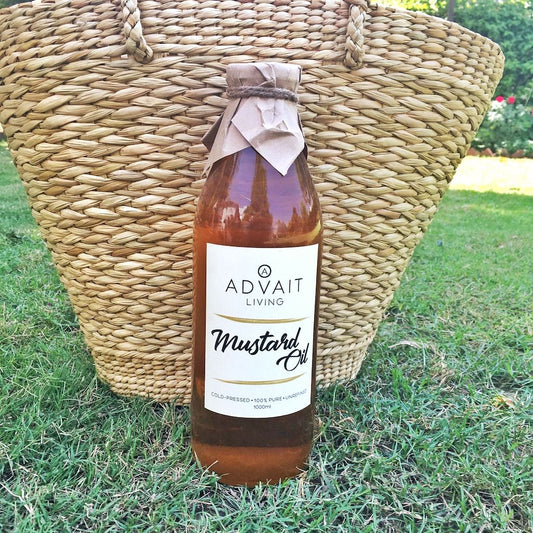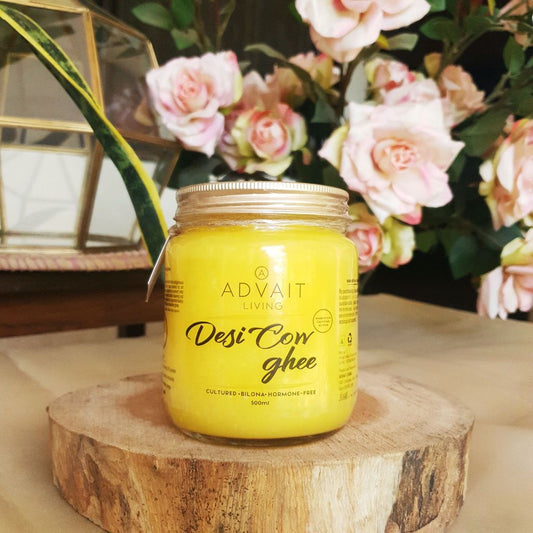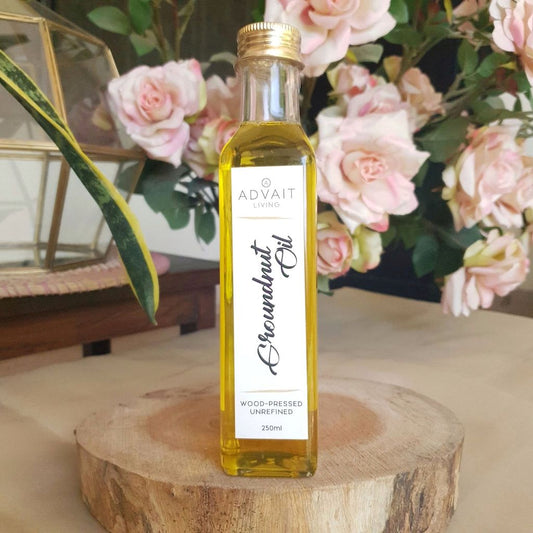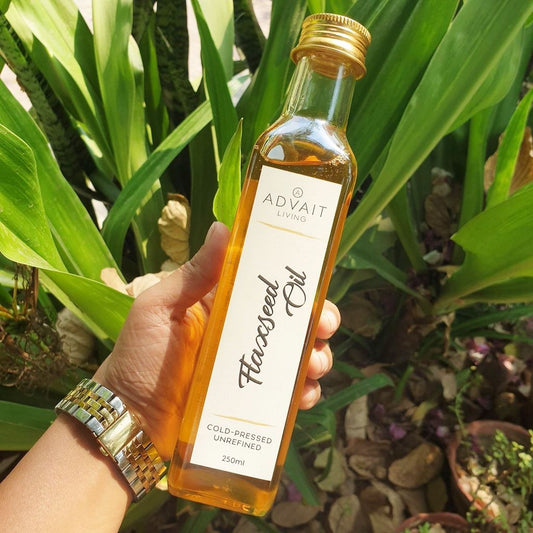Castor oil (Ricinus oleum) is a plant-based oil made by pressing the seeds of the castor oil plant. Castor oil is widely known and used for its laxative-purgative effects. It is also renowned for its capacity to prevent the growth of mold, provide lubrication and act as an emollient.
Traditional hair oils have been associated with hair and scalp health since ancient times. With its capacity to treat conditions like baldness, wrinkles, ovarian cysts, constipation, piles, asthma, and arthritis, to name a few, castor oil is hailed as a master in Ayurveda. The abundance of natural compounds in castor oil gives restorative health benefits that are widely employed in Ayurvedic medicine.
Here are some of the incredible reasons for you to consider edible castor oil application for improved hair and scalp health.
What is Edible Castor Oil?
Castor oil is a versatile plant-based oil made from the Ricinus communis plant, which is believed to have originated in India and parts of Africa. Edible castor oil is made by cold pressing castor seeds. It is pure and hexane-free. The oil itself is highly viscous with a light yellow colour and a distinct flavour. India is known as the world leader in castor seed and oil production and leads the international castor oil trade.
Read here to know how cold pressed castor oils are extracted.
Castor oil is mainly composed of fatty acids and neutral lipids (triglycerides). Ricinoleic acid, an omega-9-rich monounsaturated fatty acid, is the main component and ranges from 85-90% of the total fatty acid component. The remaining fatty acids consist of linoleic (4–5%), oleic (3–4%), stearic (1–2%), palmitic (1–2%), and linolenic (0.5–0.7%), as well as trace quantities of C20+ fatty acids. Together with other bioactive compounds including carotenoids, tocopherols, tocotrienols, and phospholipid, tricinolein, the fatty acids give it additional potency of anti-inflammatory, antimicrobial and antioxidant qualities. Castor oil is also a good source of Vitamin E.
Benefits of Castor Oil for Hair
Castor oil is widely known for its medical benefits, the most notable of which are its laxative and purgative cleansing effects. But it is also recognised for its amazing benefits for the scalp and hair, in addition to its medical purposes. The goodness of ricinoleic acid, along with other omega fatty acids, present in castor oil, works effectively in treating many hair problems.
I. Boosts Hair Growth
Castor oil has been used for hair in many parts of the world, and more so in India since ancient times. Anecdotal reports suggest that using castor oil once a month can grow your hair 3-5 times. However, no clinical studies were published to substantiate this claim.
However, new evidence shows the benefits of topical use of castor oil on hair thickening and growth. In pertinent research, two distinct lotion formulations (35% or 40% Castor oil) were used on experimental animals (rabbits) to examine the impact of hair regeneration. According to the findings, castor oil applied as a lotion for external use at a concentration of 35% has a stimulating and regenerative impact on hair. Evidence shows that the hair thickened in the treated regions. More human studies are required to strengthen this hypothesis.
Even Linoleic acid (Omega 6), present in castor oil and a precursor to arachidonic acid, is linked to promoting several factors responsible for hair growth by increasing the expression of growth factors and enhancing follicle survival.
The omega-9 fatty acid, ricinoleic acid, present in castor oil, can increase local blood flow. Scalp massages also increase blood and nutrient flow to the hair follicles. Hence, massaging the scalp with castor oil may boost hair thickness and help in hair regrowth.
II. Reduces Hair Loss
Hair loss can occur due to several reasons and could be due to ageing, hormone imbalance, high levels of stress, inflammation or malnutrition. Castor oil can work in several ways to reduce hair loss.
- Inhibits PGD2: Prostaglandin D2 (PGD2) is an eicosanoid (signalling molecule) that is produced in the central nervous system and some tissues. Elevated levels of PGD2 in the scalp are known to slow hair growth and may be responsible for hair loss and baldness, especially among males to some extent. A recent study found that ricinoleic acid, found in castor oil, can act as a potentially effective inhibitor of prostaglandin D2 synthase. In fact, PGD2 and ricinoleic acid (RA) have strikingly similar chemical structures, and RA could potentially block GPR44 receptors. By controlling the production of PDG2, castor oil could thus help prevent hair loss and be an effective and safe treatment.
- Improves hair follicle health: Castor oil has antimicrobial properties, and topical application can protect your scalp and hair follicles from any infections or bacterial attacks. Healthier hair follicles prevent hair loss and promote stronger hair growth.
- Reduces oxidative stress: A study found that individuals with androgenetic alopecia have increased levels of oxidative stress. Oxidative stress impairs the cells' (in the scalp) ability to proliferate or reproduce themselves. This has a direct impact on the cells with hair follicle and their growth cycle, including their ability to grow or hold hair. Vitamin E, in castor oil, is a powerful antioxidant and can help scavenge free radicals, thereby effectively reducing oxidative stress in the scalp. This would boost scalp health and overall quality of the hair follicle, leading to reduced hair loss and improved hair formation.
- Provides a host of nutrition to the scalp: Castor oil, in contrast to other oils, has several nutrients, including a potent combination of proteins, vitamins, fatty acids, and antioxidants. As a result, it gives the scalp the nutrition it needs. This guarantees healthy hair growth in addition to preventing hair loss.
Try our wood pressed edible castor oil for best results.
III. Prevents Dandruff and Yeast Formation
Poor scalp health can lead to dandruff, seborrheic dermatitis or psoriasis. These could be due to poor hydration, inflammation in the body, yeast infections, or even autoimmune disorders. One of the main contributors to dandruff in the human scalp is the presence of malassezia yeasts, a fungus that infects the hair follicles. In fact, Malassezia yeasts can generate reactive oxygen species (ROS) that disturb skin cell renewal and lead to crust formations on the scalp.
With its antifungal and antibacterial properties, castor oil can be a preventive treatment for dandruff by keeping the scalp free of fungus and unwanted microbes. Keep in mind that all oils (coconut, mustard or even castor oil) may feed malassezia (yeast) so people with seborrheic dermatitis should avoid using them.
IV. Improves Hair Lustre
Castor oil is a natural emollient and is used widely in hair and skincare formulations such as lotions and creams, as it soothes the skin and protects it from harsh weather. The fatty acids present in castor oil have a moisturising effect on dry hair and prevent further water loss from the epidermis layer of the scalp. Moreover, Oleic acid (omega-9) has nourishing properties, Linoleic acid (omega-6) maintains the water permeability barrier (increasing hydration), and gamma-linolenic acid (omega-3) has anti-inflammatory properties in addition to maintaining hair elasticity and calming scalp irritation. All of these contribute to keeping the hair hydrated, softer, supple and more radiant.
How To Use Castor Oil Like a Professional Trichologist?
Here are some DIY castor oil formulations that you can use in your skin and hair care recipes. A good quality, pure, hexane-free and cold pressed castor oil is best for such formulations. Remember, castor oil is highly viscous, and too much of it can leave the hair greasy and oily. So when adding castor oil to a formulation, be sure to keep it at a low percentage.
1. DIY Castor Oil Hair Mask to Boost Growth
- 1 tsp cold pressed castor oil
- 1 tsp cold pressed virgin coconut oil
- ½ tsp fenugreek seed powder
Apply a mixture of the three components to the scalp. After applying the hair mask, wait 30 minutes before rinsing. This hair pack strengthens hair roots, prevents hair loss, and encourages hair growth.
2. DIY Castor Oil-Raw Honey Hair Spray
- ½ cup cold pressed castor oil
- ½ cup fresh aloe vera pulp (pureed)
- 2 tsp raw honey
- 2-3 cups of water
- Bottle with a spray top
In a pan, add castor oil, aloe vera pulp and honey and mix them well together. Heat the mixture and slowly add the water to this. Continuously stir the mixture to ensure it remains lump-free. Heat it on a low flame for another 2-3 minutes and then remove the pan. Let the mixture cool. Transfer the contents to a bottle with a spray mechanism.
To apply the mixture, section your hair and gently spray the mixture on all parts of your hair from roots to the ends. Leave the mixture in your hair for at least 30 minutes before rinsing. This hair spray is a great way to nourish all parts of your hair, prevent any infection and soothe the scalp. This DIY hack is sure to boost extreme hair growth.
Note: Some people may not experience results with these hair DIY recipes. To prevent allergic reactions, always do a patch test.
Conclusion
Several hair issues can be treated with castor oil. Castor oil's thick nature, however, makes it desirable to combine it with another oil, such as coconut oil, before application for the greatest benefits. See the full selection of cold-pressed oils we offer here.
Castor oil is now known as a versatile oil that may be used for both cosmetic and medical purposes as a result of the expanding body of research on it. It may be used as a natural therapy to treat a variety of hair and scalp problems since it has a stimulating and regenerating impact on hair.
Frequently Asked Questions
Q1. Can castor oil reduce hair loss?
Castor oil, in contrast to other oils, has a number of nutrients, including a potent combination of proteins, vitamins, fatty acids, and antioxidants. As a result, it gives the scalp the nutrition it needs. This guarantees healthy hair growth in addition to preventing hair loss.
Q2. Can I blend coconut oil with castor oil?
Castor oil functions best when coupled with other natural oils like coconut oil, jojoba oil, and argan oil since it is thick and oily. To prevent breakage and enhance overall texture, it is advised to massage that mixture into the middle and ends of the hair.
Q3. Can we put castor oil on our hair every day?
The use of castor oil shouldn't exceed once per week. Castor oil is a thick oil that can accumulate on your hair and seem greasy if applied frequently.
Q4. Can I apply castor oil to my hair overnight?
To keep your scalp from becoming very dry, you should wash the castor oil out of your hair after about two hours of application.












